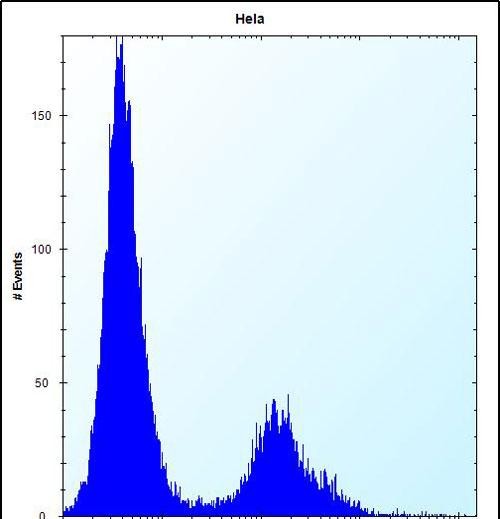

| WB | 1/1000 | Human,Mouse,Rat |
| IF | 咨询技术 | Human,Mouse,Rat |
| IHC | 咨询技术 | Human,Mouse,Rat |
| ICC | 技术咨询 | Human,Mouse,Rat |
| FCM | 1/10-1/50 | Human,Mouse,Rat |
| Elisa | 咨询技术 | Human,Mouse,Rat |
| Aliases | Vitamin D3 receptor, VDR,25-dihydroxyvitamin D3 receptor, Nuclear receptor subfamily 1 group I member 1, VDR, NR1I1 |
| Entrez GeneID | 7421 |
| WB Predicted band size | 48.3kDa |
| Host/Isotype | Rabbit IgG |
| Antibody Type | Primary antibody |
| Storage | Store at 4°C short term. Aliquot and store at -20°C long term. Avoid freeze/thaw cycles. |
| Species Reactivity | Human |
| Immunogen | This VDR antibody is generated from rabbits immunized with a KLH conjugated synthetic peptide between 274-299 amino acids from the Central region of human VDR. |
| Formulation | Purified antibody in PBS with 0.05% sodium azide. |
+ +
以下是关于VDR抗体的3篇参考文献及其摘要概括:
---
1. **文献名称**: *Anti-Vitamin D Receptor Antibodies in Systemic Lupus Erythematosus*
**作者**: Ritterhouse, L.L. et al.
**摘要**: 该研究检测了系统性红斑狼疮(SLE)患者血清中的VDR抗体,发现其阳性率显著高于健康对照组。VDR抗体与疾病活动度(如SLEDAI评分升高)和低维生素D水平相关,提示其可能干扰维生素D信号通路并加剧自身免疫反应。
---
2. **文献名称**: *Vitamin D Receptor Autoantibodies in Autoimmune Diseases*
**作者**: Kamen, D.L. et al.
**摘要**: 研究探讨了VDR抗体在多种自身免疫病(如类风湿关节炎、干燥综合征)中的分布。结果显示,VDR抗体可能通过阻断维生素D与受体结合,抑制抗炎作用,导致免疫调节异常和炎症因子(如IL-17)水平升高。
---
3. **文献名称**: *Clinical Significance of Anti-VDR Antibodies in Type 1 Diabetes*
**作者**: Bogaczewicz, J. et al.
**摘要**: 研究分析了1型糖尿病患者中VDR抗体的存在及其与β细胞功能的关系。发现VDR抗体阳性患者胰岛素分泌能力更低,且维生素D补充治疗效果较差,提示抗体可能作为疾病进展的潜在生物标志物。
---
以上文献均聚焦于VDR抗体在自身免疫病理机制中的作用,涵盖疾病关联、分子机制及临床意义。
Vitamin D receptor (VDR) antibodies are tools used to study the vitamin D receptor, a nuclear hormone receptor critical for mediating the effects of vitamin D. The VDR, encoded by the *VDR* gene, regulates gene expression by binding to active vitamin D metabolites (e.g., calcitriol) and forming complexes with retinoid X receptors (RXR). This interaction modulates pathways involved in calcium homeostasis, immune function, cell proliferation, and differentiation. Dysregulation of VDR signaling is linked to osteoporosis, autoimmune disorders, cancer, and metabolic diseases.
VDR antibodies are essential in research to detect VDR expression, localization, and function in tissues or cells. They are widely used in techniques like immunohistochemistry, Western blotting, and flow cytometry. In clinical contexts, these antibodies may aid in diagnosing VDR-related pathologies or studying resistance to vitamin D therapy. For instance, low VDR levels in certain cancers correlate with poor prognosis, while autoimmune conditions like lupus often show altered VDR activity.
Commercially available VDR antibodies include monoclonal and polyclonal types, targeting specific epitopes or isoforms. However, variability in antibody specificity and validation methods requires careful experimental optimization. Recent studies also explore VDR's role in gut microbiota interactions and infectious diseases, expanding its therapeutic relevance. Overall, VDR antibodies remain pivotal in unraveling the receptor's multifaceted roles and developing targeted therapies for VDR-associated disorders.
×